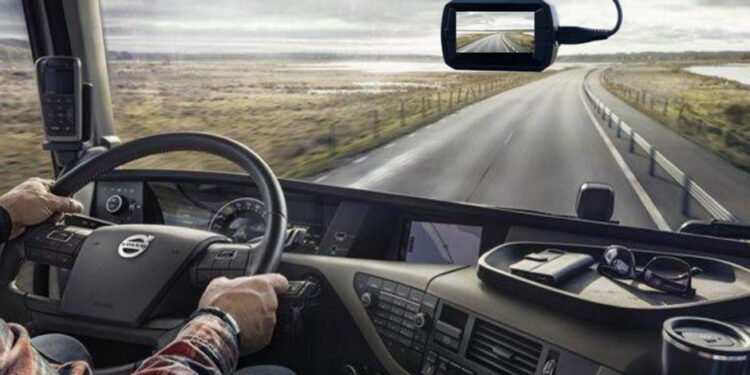In the intricate dance of fleet management, the safety of drivers and vehicles is the rhythm that keeps the business moving smoothly. As roads grow busier and driving becomes more unpredictable, robust safety measures are crucial.
Dashcams, once a luxury, are now essential in the fleet operator’s toolkit, serving as vigilant guardians that capture the reality of the road and provide a critical safety net for drivers and vehicles alike. These devices not only capture footage but also serve as a cornerstone for safety, accountability, and efficiency within fleet operations.
The Stark Reality of Fleet Accidents
In 2019, the U.S. experienced approximately 510,000 large truck-related crashes, resulting in 4,479 fatalities and 114,000 injuries, as reported by the Federal Motor Carrier Safety Administration. The Bureau of Labor Statistics further highlights that transportation incidents topped the charts for fatal work injuries that year, with 2,122 occurrences. Additionally, the National Highway Traffic Safety Administration quantifies the economic burden of traffic crashes at a staggering $242 billion annually. These figures underline the profound impact of road incidents on both safety and the economy.
5 Reasons Why Dashcams Are Essential for Safety
This section will explore five compelling reasons why your fleet needs dashcams like these, emphasizing their critical role in maintaining safety standards.
1. Evidence in Case of Accidents
Accidents are a fleet manager’s nightmare, not just for their immediate impact but also for the long-winded disputes that often follow. Dashcams provide a factual recount of events, offering a clear sequence of the moments leading up to, during, and after an accident. This footage is critical when navigating the complexities of insurance claims and legal disputes. It can significantly shorten the duration of investigations, ensuring that justice is served swiftly and accurately.
Furthermore, the presence of dashcams can often lead to quicker settlements from insurance companies, who value the concrete evidence that dashcams provide, thereby reducing the time vehicles spend off the road and minimizing disruption to your operations.
2. Improved Driver Behavior
Dashcams wield a significant influence on how drivers operate on the road. The knowledge that their driving is being recorded often leads to more cautious behavior, reducing the likelihood of accidents. This heightened sense of accountability doesn’t just bolster the fleet’s safety record, it also enhances driver well-being.
Moreover, the footage from dashcams can be a valuable tool for acknowledging and incentivizing good driving habits, fostering an environment where best practices are not just encouraged but celebrated. This culture of accountability and recognition can significantly enhance the overall morale and professionalism within the fleet.
3. Training and Coaching Opportunities
Dashcams are an invaluable educational resource. The footage they capture is a window into the daily challenges drivers face and provides a platform for constructive feedback. Fleet managers can dissect the footage, highlighting both commendable and improvable driving behaviors. This direct approach to driver training is far more impactful than theoretical lessons, as it is personalized and rooted in the driver’s own experiences.
By leveraging this technology, fleets can develop tailor-made training programs that address specific needs, ultimately leading to a safer and more competent driving team.
4. Protection Against Fraud
The road can be a stage for unscrupulous individuals who orchestrate accidents to exploit insurance companies. These staged accidents not only endanger lives but also threaten the financial stability of businesses.
Dashcams are an effective countermeasure to these fraudulent schemes. They provide a factual account of events, which can be used to refute false claims and protect your drivers and your business from being victimized. The cost savings from avoiding these scams can be substantial, making dashcams a wise investment for the financial health of your fleet.
5. Enhanced Fleet Management with Cameramatics AI Dash Camera
The integration of artificial intelligence with dashcam technology marks a significant leap forward in fleet management capabilities. The Cameramatics AI dash camera, for instance, offers more than just video recording. It analyzes driving patterns, detects road hazards, and provides actionable insights to drivers in real time. This proactive approach to safety can drastically reduce the chances of accidents.
AI-powered dashcams can also streamline fleet operations by automating tasks such as route optimization and maintenance alerts, thereby enhancing the overall efficiency of the fleet.
Conclusion
Adopting dashcam technology equips fleet operators to navigate the complexities of modern roadways effectively, safeguarding drivers and smoothing out operational hiccups. This proactive approach not only fortifies the business against present challenges but also positions it for future success. Dashcams transcend their role as a mere safety feature, representing a strategic investment in the longevity and prosperity of fleet management.












